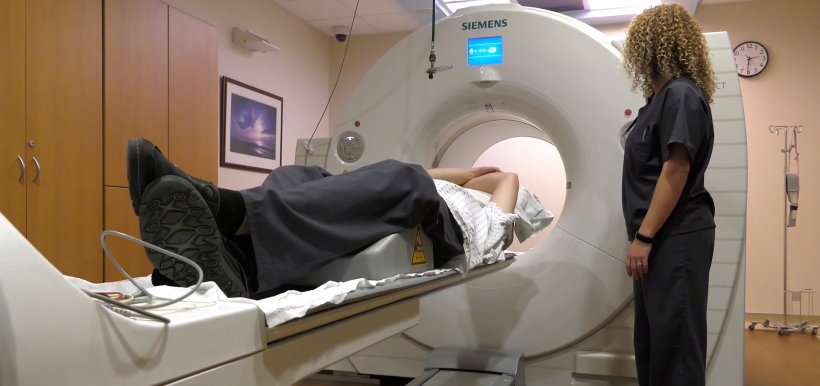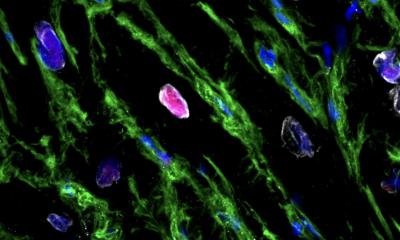
Image credit: Intermountain Health
News • Cardiac event marker
Coronary artery calcium score: useful regardless of age
Having a coronary artery calcium (CAC) score of zero has generally been accepted as a marker of a very low risk of having a cardiac event within the next five years. However, age is a strong contributor to coronary risk, with risk increasing markedly as people age.
Whether age-related risk factors diminish the low risk predicted by a zero coronary artery calcium score has been uncertain – until now. A large new study of more than 40,000 patients from heart researchers at Intermountain Health in Salt Lake City finds that a zero coronary artery calcium score continues to be an accurate indicator of a low risk for a coronary heart event even as a person ages. Moreover, researchers found that patients with a zero coronary artery calcium score also had a two to three times lower risk of death from any cause at any age, including in seniors.
Given these results, a zero coronary artery calcium score may also be a predictor of not only very low coronary death but also of a lower risk of other causes of death
Jeffrey L. Anderson
The findings of the new study are important because as cholesterol-laden plaques in the heart’s coronary arteries age, they attract calcium. “We found that a zero-plaque burden is not only highly prognostic of good heart health at any age, but also of excellent overall survival,” said Jeffrey L. Anderson, principal investigator of the study and distinguished clinical and research physician at Intermountain Health. “Our findings show that having little or no coronary plaque predicts that people will live longer, healthier lives, including into their golden years.”
A coronary artery calcium score of zero indicates essentially no advanced coronary plaques. A score of 1-99 indicates a mild case of plaque, a score of 100-299 a moderate case, and a score of 300 or more a high case. The risk of a coronary event in the overall population generally parallels the coronary artery calcium plaque burden, said Dr. Anderson.
In the retrospective study, Intermountain Health researchers identified 40,820 symptomatic patients over a 10-year period who were at primary coronary risk and who underwent a PET/CT scan, which quantifies advanced, calcified plaque is in the vessels of the heart. Of that overall group, 8,170 patients had a coronary artery calcium score of zero, with 5,185 of those patients under age 65, and 2,782 patients 65 or older. They then assessed coronary prognosis during an average follow up of over 2 years.
Intermountain researchers found that a zero coronary artery calcium score was predictive of a very low risk of coronary death or non-fatal heart attack and of death of any cause. Coronary events occurred in only 0.12% of younger patients and 0.25% of older patients, a non-significant difference. Comparing overall death or heart attack rates in those with the presence of coronary artery calcium to CAC-zero patients showed two to three-fold lower event rates with zero coronary artery calcium scores in both older and younger age groups, demonstrating the value of a zero coronary artery calcium score at any age. “If you have disease in your coronary arteries, you may also have vascular complications in other organs of your body,” said Dr. Anderson. “Given these results, a zero coronary artery calcium score may also be a predictor of not only very low coronary death but also of a lower risk of other causes of death.”
The next step in the research is to further explore the relationship between a zero coronary artery calcium score and all-cause death, including vascular diseases in other organs and even cancer,” Dr. Anderson added. Findings from the Intermountain Health study were presented at the American College of Cardiology’s annual scientific sessions conference in Chicago.
Source: Intermountain Healthcare
30.03.2025





